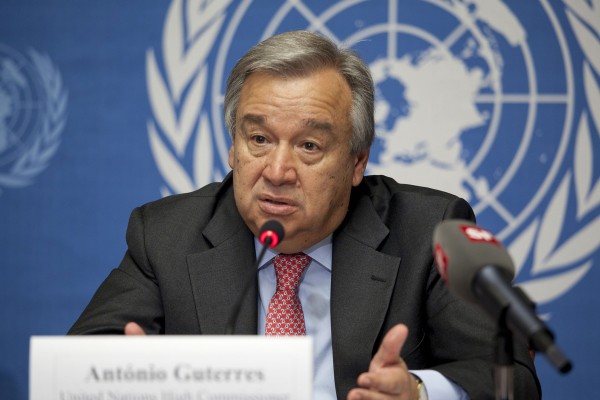Humanitarian Crisis in Mariupol: UN Calls for Immediate Cessation of Fighting
The humanitarian catastrophe in Mariupol continues to escalate, and more and more trapped civilians are fighting for their survival. Now, several UN-Organizations are calling on the Russian war leadership to establish humanitarian escape corridors and to cease hostilities immediately.
 Humanitarian Crisis: The UN calls for an immediate stop to the fighting in Mariupol. / Picture: © Wikimedia Commons / U.S. Mission Photo by Eric Bridiers [Public Domain]
Humanitarian Crisis: The UN calls for an immediate stop to the fighting in Mariupol. / Picture: © Wikimedia Commons / U.S. Mission Photo by Eric Bridiers [Public Domain]
The United Nations is calling for an immediate ceasefire in Mariupol. The UN Crisis Coordinator in Ukraine, Amin Awad, called for an instant end to the fighting to ensure that trapped civilians can leave the city safely.
"The lives of tens of thousands including women, children, and elderly people, are at stake in Mariupol," said Amin Awad in a statement. "We need a pause in fighting right now to save lives. The longer we wait the more lives will be at risk. They must be allowed to safely evacuate now, today. Tomorrow could be too late."
Guterres in Moscow
Admittedly, he is not alone in this demand. As recently announced, UN Secretary General António Guterres visited Russian Foreign Minister Sergey Lavrov in Moscow recently.
At the meeting, he addressed the dire situation of civilians in the embattled city and renewed the UN demand for the establishment of escape corridors according to APA. Guterres will also be received by Russian President Putin afterwards and will have a meeting with him.
Humanitarian situation continues to worsen
Ongoing hostilities and relentless fighting continue to worsen the humanitarian situation in Ukraine's combat zones, UN agencies report. War crimes, bombings, and lack of relief supplies have forced a quarter of Ukraine's population to flee either domestically or abroad.
Out of a total population of over 44 million, that is more than 11 million displaced people, most of whom are women and children.
The most recent assessment by the International Organization for Migration (IOM) found that about 60 percent of the displaced are women, and more than half of the displaced have declared their need for food.
The World Food Programme (WFP) has warned that more than a quarter of displaced families with children under five have reported difficulties feeding their children since the conflict began.
As hostilities intensify, the basic needs of people stranded in hard-to-reach areas increase, while efforts to establish humanitarian corridors to evacuate civilians and provide life-saving assistance are hampered.
The needs are most urgent and critical in these locations, where there are high levels of insecurity, food supplies and retail capacity are disrupted, and humanitarian access is limited or sporadic, such as in Mariupol.



